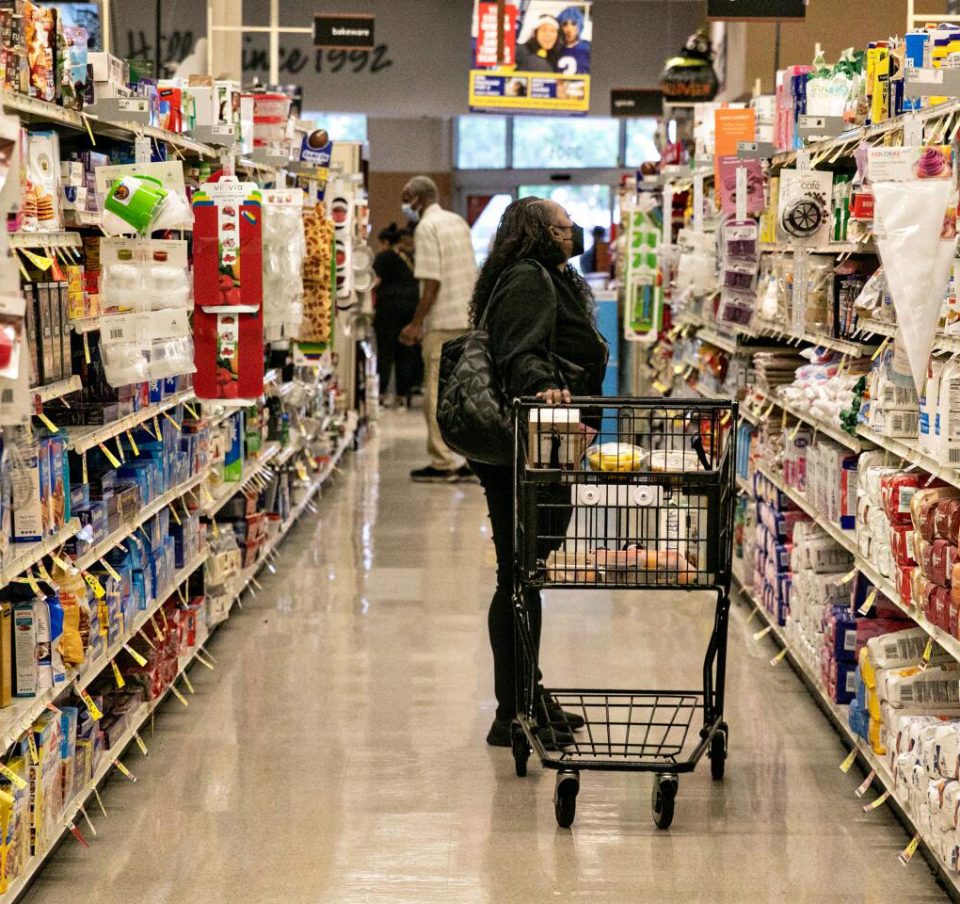Amidst economic challenges that impact consumers in varied ways depending on their financial situation, Kroger’s enhanced focus on private-label products is proving to be a pivotal strategy in retaining budget-conscious shoppers.
In a recent analyst call discussing Kroger’s Q1 2024 financial results, CEO Rodney McMullen highlighted the differing purchasing behaviors across various demographics.
“Customers continue to seek value and are shopping with us differently based on their financial situations,” McMullen noted.
He explained that “premium and mainstream” shoppers remain engaged, with the former group showing increased loyalty and the latter driving new customer acquisition.
McMullen added, “We are seeing positive trends among our most budget-conscious households, with growth in this segment after declines last year. Economic factors like historic multi-year inflation, high interest rates, and reduced government benefits have disproportionately impacted these customers, shaping their spending habits.”
Interim CFO Todd Foley emphasized the success of Kroger’s private-label offerings in resonating with cost-sensitive shoppers, contributing to the company’s growth. Kroger’s recent quarter saw the introduction of 346 new private-label products, the rebranding of two of its existing lines, and the rollout of new packaging for another.
Amid inflation, lower-income shoppers are more inclined to opt for more affordable product versions. The PYMNTS Intelligence study, “Consumer Inflation Sentiment Report: Consumers Cut Back by Trading Down,” revealed that 42% of consumers earning less than $50,000 annually had switched to lower-quality products due to price hikes, compared to only 30% of those earning over $100,000.
Focusing on Personalized Growth
Looking forward, Kroger is leveraging personalized offers to drive further growth, as targeted discounts become increasingly important to consumers.
“Personalization allows us to optimize our promotional efforts, leading to an 18% increase in digital coupon usage year-over-year,” McMullen said. “Expanding our digital household base is crucial for our long-term growth, as these customers demonstrate greater loyalty and higher spending.”
McMullen noted that increased digital engagement not only supports grocery sales but also helps drive interest in Kroger’s other services, such as its health offerings.
Consumers are showing a strong preference for personalized deals but often find existing offers lacking. According to the PYMNTS Intelligence report, “Personalized Offers Are Powerful — But Too Often Off-Base,” 83% of U.S. consumers expressed interest in receiving personalized offers, yet only 44% found these offers highly relevant to their needs.
Kroger’s advantage in the digital loyalty landscape is underscored by competitors’ shortcomings. The “2024 Global Digital Shopping Index: U.S. Edition” by PYMNTS Intelligence, in collaboration with Visa Acceptance Solutions, highlighted that 54% of grocery shoppers see loyalty programs as essential, yet many retailers fail to meet these expectations.
Source: PYMNTS

